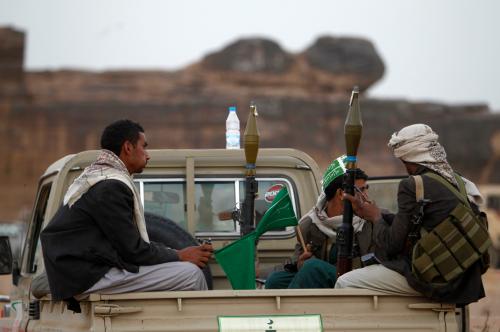“A Tragic Ball in Colombey: One Dead”. When Hara Kiri, one of the most provocative and satirical magazines in the Western world used that headline to describe the death of France’s national war hero, Charles de Gaulle, in 1970, it became so controversial that the government decided to close it down. More than twenty years later, it came back under the name Charlie Hebdo to the joy of its left-leaning, libertarian readers. Today, Charlie Hebdo is mourning its dead after Wednesday morning’s tragedy, and no one is laughing. The assassination of ten Charlie Hebdo journalists and cartoonists (plus at least two police officers who were there to protect the newspaper) is not only the deadliest terrorist attack in France since the 1960s, it is also a case for national unity in France.
Charlie Hebdo is part of the French tradition of political cartoons. Irreverence may not be to the taste of everyone, but I despair at the fact the likes of Cabu, Wolinski, Tignous and the magazine’s editor Stéphane “Charb” Charbonnier will no longer be there to entertain and sometimes inform me in their own ways. Another great Charlie Hebdo contributor to be missed will be Bernard Maris, a left-wing economist with a warm voice, often commenting on French radio. On Tuesday, he like the others was attending the weekly editorial meeting.
Charlie Hebdo is a champion of press freedom – perhaps to the extreme when it profiles Prophet Muhammed in offending ways like in 2006, when it rushed to reprint controversial cartoons from Jyllands Posten, the Danish newspaper that had come under attack by extremists for offending Islam. In 2011, the paper was bombed after publishing a “special Muhammed issue.” Muslim organizations also filed legal complaints against the magazine.
In a world where intolerance is on the rise, France can be proud of possessing –and protecting – press freedom – a right widely supported by its citizens. It is no surprise that French people have been rallying all over the country for the past hours to protest against such barbaric acts. Messages like “Je suis Charlie” or “We are all Charlies” have been spreading all over France and are now spreading to neighboring European countries. A similar banner also appears in several languages on the magazine’s website which went offline for a few hours – but I’m sure will be revived again soon. It is time to rally against barbarity. Je suis Charlie aussi.
The Brookings Institution is committed to quality, independence, and impact.
We are supported by a diverse array of funders. In line with our values and policies, each Brookings publication represents the sole views of its author(s).



Commentary
“Je Suis Charlie” – Defending Press Freedom in France
January 7, 2015